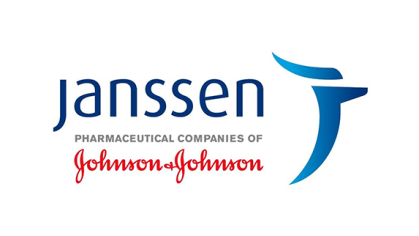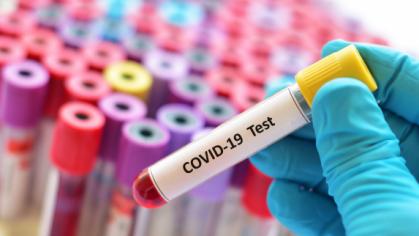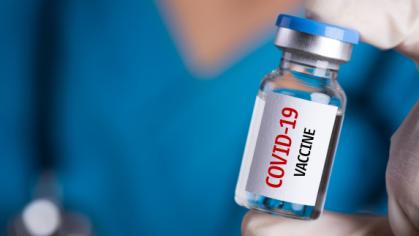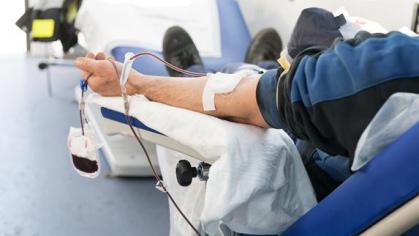COVID-19 Research Activities at Rutgers
CCRP2-Sponsored Projects
Accordion Content
-
Computational Tools for COVID-19 Mpro Inhibitor Design and Precision Medicine
Darrin York, David Case
Utilizes high-performance computing to aid in the design of COVID-19 main protease inhibitors and to inform precision medicine therapies.COVID-19, HIV, and Other Health Comorbidities: A Syndemic in Essex County, New Jersey
Stephanie Shiau, Perry Halkitis, Pamela Valera, Kristen Krause, Shobha Swaminathan
Studies comorbidities between COVID-19, HIV, and other comorbidities in Essex County, New Jersey.Democratizing Joint Multiscale Modeling of Movement, Policy, and Spread of Infectious Diseases
Mubbasir Kapadia, Benedetto Piccoli, Sarah Allred
Computationally models human behavior and social policy restrictions to forecast the spread of COVID-19.Developing Mouse-Adapted SARS-CoV2 in Live Mice
Yosuke Kumamoto, Sergei Kotenko
Develops a new mouse-adapted model for SARS-CoV-2 infection, which will provide new research tools for studying COVID-19 pathogenesis.Development of a Preclinical Golden Syrian Hamster Model of Non-Lethal and Lethal SARSCoV- 2 Infection
Selvakumar Subbian, Theresa Chang
Develops a new hamster model for SARS-CoV-2 infection, which will provide new research tools for studying COVID-19 pathogenesis.The Essential Role of Protein Motions in Therapeutic Design: Understanding How Dynamics Regulate SARS-CoV-2 Spike RBD-ACE2 Interactions
Jean Baum
Studies interactions between SARS-CoV-2 spike protein and the ACE2 receptor in COVID-19 pathogenesis, which can lead to new therapies that inhibit transmission.Evaluating SARS-CoV-2 Infection and Susceptibility Among Health Care Workers in Botswana
Richard Marlink, Tendani Gaolathe, Kirthana Sharma, Martin Blaser, Jeffrey Carson, Reynold Panettieri, Maria Gennaro, Henry Raymond
Studies the natural history and immunological responses of health care workers in Botswana.Evaluation of a Brief, Telehealth Intervention to Support Emotional Distress of Autistic Adults During COVID-19
Vanessa Bal, Brian Chu
Adapts Group Behavioral Activation Therapy to address the COVID-19 mental health needs of autistic adults.Fragment-Based Ligand Discovery Against SARS-CoV-2 Papain-Like Protease
Nilgun Tumer, Sagar Khare, Xiao-Ping Li
Performs fragment-based ligand discovery to develop new therapies for treating COVID-19.Genetic Analysis of Susceptibility to and Severity of COVID-19 Infection
Tara Matise, Steven Buyske
Studies genetic determinants of COVID-19 susceptibility and severity in health care workers exposed to COVID-19 in New Jersey.IFN-Based Antivirals for the Treatment of SARS-CoV-2
Sergei Kotenko, Joan Durbin, Raymond Birge, Amariliz Rivera, Dane Parker
Studies the role of Type I and Type III interferons in mounting antiviral responses during SARS-CoV-2 infection, which may lead to novel interferon-based therapeutic strategies.Immunotherapy
Alok Choudhary, Abraham Pinter, Maria Gennaro
Studies neutralizing monoclonal antibodies from COVID-19 patients who have recovered from disease, which may help vaccine design and lead to the design of therapeutic antibody cocktails for treating COVID-19.Impact of Immune Cell Senescence on Severity of COVID-19 Disease; Evaluation of Therapeutic Mechanisms in Hospitalized COVID-19 Patients
Patricia Fitzgerald-Bocarsly, Yingda Xie, Utz Herbig, Sukhwinder Singh, Amariliz Rivera, Jason Yang, David Alland, Padmini Salgame, Shou-en Lu, Tilly Varughese, Amesika Nyaku
Studies the role of immune cell senescence, immune cell exhaustion, and inflammation in COVID-19 disease severity in New Jersey COVID-19 patients, which may lead to new clinical biomarkers and host-directed treatment strategies.Lymphocyte Telomere Length Dynamics and Lymphopenia in Patients with COVID-19
Abraham Aviv, Tsung-Po Lai
Explores the role of telomere length dynamics on COVID-19 pathogenesis, which may lead to new drugs that combat COVID-19 by bolstering white blood cells.Modifying Protein Conformational Dynamics to Improve the Adaptive Immune Response: An Orthogonal Approach to Generate a SARS-CoV-2 Vaccine
Stephen Anderson, Elliot Campbell, Lisa Denzin, Derek Sant’Angelo
Performs antigen engineering to develop new vaccines for COVID-19.Monitoring of the COVID-19 Outbreak in Sewage
Nicole Fahrenfeld
Uses sewer surveillance to monitor and predict the spread of COVID-19 in New Jersey.Novel Antibody Phage Display to Find Antibodies Specific to SARS-CoV-2
William Belden
Performs antibody phage display to develop new vaccines for COVID-19.Role of ACE2 in COVID-19 Patients with Hypertension
Stephen Vatner, Rotem Naftalovich
Studies ACE2 expression in COVID-19 patients treated with anti-hypertensive therapies, which may lead to novel therapeutic strategies for treating COVID-19.SARS-CoV2 Spike Protein: ACE2 Interactions
Monica Roth, William Welsh
Studies interactions between SARS-CoV-2 spike protein and the ACE2 receptor in COVID-19 pathogenesis, which can lead to new therapies that inhibit transmission.Structural and Small-Molecule Binding Studies of SARS-CoV-2 Polyproteins and Proteins
Edward Arnold, Jason Kaelber
Uses cryo-electron microscopy to study the structural biology of SARS-CoV-2 polyproteins, which may aid in COVID-19 drug discovery.Super-Effective Face Masks With Internal Decontamination of Virus Particles
Joachim Kohn, Sanjeeva Murthy, Kim-Phuong Le
Develops self-decontaminating face masks for preventing COVID-19 transmission.Transdermal Delivery of DNA Vaccine for SARS-CoV-2
Hao Lin, Jonathan Singer, Jerry Shan, Jeffrey Zahn, David Shreiber, Biju Parekkadan
Develops a new technology for delivering COVID-19 vaccines through the skin. -
Artificial Intelligence (AI), Pandemics, and Mental Health
Vivek Singh, Vincent Silenzio, Sara Pixley
Studies the temporal relationship between mental health and digital behavior in response to the physical and emotional stresses imposed by COVID-19.Brief Scaleable Mental Health Intervention for College Students
Shireen Rizvi, Evan Kleiman
Evaluates evidence-based coping skills interventions for addressing mental health challenges in Rutgers college students.The CARE Study - Comprehensive Analysis of Responders' Emotions
Pamela de Cordova, Irina Grafova, Mary Johansen
Studies the effects of work environment and personal protective equipment availability on the mental and physical health of health care workers.COVID-19 and New Jersey Prisons
Brittany Friedman, Paul Hirschfield, Alexis Karteron
Studies how COVID-19 policymaking affects the experiences of correctional staff and inmates in New Jersey prisons.The Economic and Social Impacts of COVID-19 Public Health Policies in Uganda
Slawa Rokicki, Mark McGovern
Studies how COVID-19 policies affect health care utilization, food security, and mental health in Uganda.The Impact of COVID-19 on Families and Caseworkers in NYC
Cassandra Simmel
Explores the impact of COVID-19 on at-risk families in New York City.K-12 Teacher Response to COVID-19-Induced Emergency Transition to Remote and Online Teaching and Learning in the State of New Jersey
Rebecca Reynolds, David Shernoff
Studies the transition to remote and online teaching and learning in New Jersey school districts.Migrant Detention, Deportation, and COVID-19 Transmission: Public Health and Safety Challenges in New Jersey / Putting Stories to Work
Ulla Berg, Bridget Purcell, K. Sebastian León, Sarah Tosh, Cati Coe, Joanne Gottesman, Leslie Kay Jones, Catherine Lee, Randi Mandelbaum, Domingo Morel, Tim Raphael, Louisa Schein
Studies the impact of New Jersey migrant detention and deportation on COVID-19 transmission and the disproportionate impacts of COVID-19 on immigrant, minority, elderly, and working-class families.Mitigating the Impact of Parental Substance Use, Parenting Stress, and Child Maltreatment During the COVID-19 Epidemic
Emily Bosk
Examines the links between parenting, trauma, stress, and recovery in response to the stresses imposed by COVID-19.Moving Beyond the Biopsychosocial Model: Understanding the Medical and Non-Medical Needs of Immunosuppressed Children, Adolescents, and Young Adults with Rheumatic and Other Autoimmune Diseases During the COVID-19 Pandemic
Lakshmi Moorthy, Vivien Hsu, Sunanda Gaur, Lawrence Kleinman
Studies the protective potential for immunosuppressors in COVID-19 patients with rheumatic diseases.A Population Health Perspective on Risk and Resilience at the Municipal Level in Response to COVID-19
Emily Greenfield, Sarah Allred
Studies the county and municipal effects of local geo-spatial environments on COVID-19 mortality in New Jersey.Social Science Research on Impact of COVID-19 on Policy and Service Delivery for Mental Health and Substance Abuse
James Walkup, Stephen Crystal, Amesika Nyaku, Jamey Lister
Surveys tele-mental health services and addiction treatments in the United States during the COVID-19 pandemic.Society and COVID-19, an Interdisciplinary Response to the Social Contradictions and Historical Trends Exposed by the Pandemic
Sadia Abbas, Sean Mitchell, Samah Selim, Antonio Vázquez-Arroyo
Brings together scholars, activists, humanists, and artists to examine the COVID-19 pandemic from a global perspective in the context of social crisis.
Research Resources
Experimental Resources Available at Rutgers
CCRP2 has developed and curated several resources to aid COVID-19 research at Rutgers University. These include Biosafety Level-3 research facilities, a CDC-approved Regional Biocontainment Laboratory located in the ICPH building at the NJMS campus, GFP-reporter SARS-CoV-2 virus, and high-resolution crystal structures of SARS-CoV-2 proteins at the Institute for Quantitative Biomedicine and RCSB Protein Data Bank.
Rutgers’ Comparative Medicine Resources is generating several unique animal models for COVID-19 biomedical research, which are available to all Rutgers investigators for COVID-19 and other research projects. These include C57BL/6J and NSG mice bearing:
- Knock-in, constitutive and inducible human ACE2
- Knock-in, constitutive and inducible human TMPRSS2
- Knock-in, constitutive human CD147
- Double knock-in, constitutive human ACE2 and TMPRSS2
Please contact Amariliz Rivera and Jason Yang to learn more about the status of these resources and on how to access them for your research.
Library Resources Available at Rutgers
The Rutgers University Libraries have assembled links to several online information resources for COVID-19 research.
Explore Rutgers University Libraries COVID-19 Information Resources
Funding Opportunities
CCRP2 collaborates with the Office for Research to curate extramural funding opportunities for COVID-19 research spanning all disciplines. Please contact Amariliz Rivera and Jason Yang if you would like the CCRP2 to support your extramural funding applications with a letter of support detailing available resources relevant to your research.
Explore active extramural funding opportunities
In 2020, CCRP2 held two separate rounds of intramural funding competition for COVID-19 research in biomedical and social sciences. These intramural programs garnered enthusiastic participation by researchers from all campuses , with 97 applications for biomedical research and 60 for social research. From these applications, 35 teams of Rutgers investigators were funded to pursue research projects spanning basic, translational, and clinical biomedical research and social science research on the societal, psychological, and policy impacts of COVID-19. These awards are generously supported by the Office for Research, the Rutgers University Foundation, Rutgers Biomedical and Health Sciences, Rutgers University–New Brunswick, and Rutgers University-Newark.
BSL-3 Research Guidelines
All COVID-19 research projects using biohazardous materials must be fully approved by the Institutional Biosafety Committee (IBC) prior to performing any experiments. Please visit the Rutgers Biosafety Program for the most up-to-date biosafety information on COVID-19-related research at Rutgers or contact biosafety@rutgers.edu.
CCRP2 has also established a BSL-3 Advisory Committee that will review new COVID-19 study proposals that require resources at the International Center for Public Health (ICPH) building, including BSL-3, ABSL-3, or BSL-2 enhanced. This committee is chaired by Padmini Salgame and includes representatives from several Rutgers research organizations:
- Guillaume Delmas (Rutgers Environmental Health and Safety)
- Jeetendra Eswaraka (Comparative Medicine Resources)
- Anthony Gresko (Rutgers Environmental Health and Safety)
- Pradeep Kumar (Center for Emerging Pathogens)
- Sumanth Kumar Putta (Comparative Medicine Resources)
- Deborah Lazzarino (NJMS Assistant Dean for Research)
- Riccardo Russo (Rutgers Regional Biocontainment Laboratory)
- Selvakumar Subbian (Public Health Research Institute)
This committee will provide recommendations to David Alland, Director of the Center for COVID-19 Response and Pandemic Preparedness, to promote resource planning and programmatic decisions for the BSL-3 facilities in the ICPH building.
To facilitate and expedite COVID-19 research, standard operating procedures for in vitro and in vivo work with SARS-CoV-2 virus, virus inactivation procedures, activity-specific biosafety guidelines, and risk assessments for work with SARS-CoV-2 are being established.
If you are interested in performing COVID-19 research in BSL-3/ABSL-3 facilities at ICPH, please review the BSL-3 COVID-19 Project Approval Workflow and complete the following steps:
- Submit a biosafety protocol in MyREHS. An approved IBC protocol is required prior to conducting any COVID-19-related research. Note: IBC approval does not constitute permission to access or begin work in a BSL3 facility.
- Submit the COVID-19 Studies in ABSL-3, BSL-3, or BSL-2 Enhanced Labs form.
REHS will liaise with the BSL-3 Standard Operating Procedure (SOP) Committee to confirm that SOPs being referred to are appropriate for the proposed activities, including inactivation. Note: BSL-3 SOPs are separate from both the IBC protocol and the IBC review process. The IBC does not oversee the development or review of BSL-3 SOPs.
Please contact David Alland if a letter of support describing CCRP2-supported BSL-3 research activities is required for external funding applications.
All requests will be reviewed and prioritized by David Alland and the BSL-3 Advisory Committee. Please email any questions to proposed.covid19.studies.icph@njms.rutgers.edu
Clinical Trials
Rutgers University was selected as the only COVID-19 Prevention Network (CoVPN) site in New Jersey as part of NIH’s Operation Warp Speed and is involved in vaccine, therapeutics, and diagnostic trials.
Clinical studies at Rutgers have focused on several important challenges relevant to the COVID-19 pandemic:
- Understanding the transmission efficacy of COVID-19 to front-line healthcare workers
- Testing some of the most promising treatments for moderate and severe COVID-related illnesses
- Evaluating COVID-19 vaccines in diverse New Jersey communities
As the pandemic continues, Rutgers faculty are leading several new avenues of clinical exploration, including the development of low-cost point-of-care testing that can be used in low- and middle-income countries, as well as targeted therapeutics for the sickest of COVID-19 patients.
Featured Studies

Rutgers investigator-initiated, in collaboration with Boehringer Ingelheim, ATTAC-19 explores the efficacy of a combination medicine of aspirin and dipyridamole - typically used to reduce stroke risk - to treat patients with SARS-CoV-2 and COVID-19 symptoms (led by Amit Singla).

In the US, Rutgers recruited and enrolled the largest number of participants, 850+, and was the second highest enrollment site globally in this critical COVID-19 single-dose vaccine study (led by Jeffrey Carson).

This pilot study’s aim is to determine whether early intervention with EDP1815, a monoclonal microbe, can prevent progression of COVID-19 symptoms and the development of complications associated with hyperinflammation and cytokine storm (led by Reynold Panettieri, with Sunil Patel).
COVID-19 Initiatives
Rutgers investigators are active in supporting a range of COVID-19 initiatives, testing approaches, behavioral interventions and treatment studies at RBHS sites. Here is a sample of that range of research:
-
As an NIH-National Center for Advancing Translational Sciences (NCATS) collaborator, RBHS serves as a trial site for the NCATS ACTIV studies. Among them is the ACTIV-1 IM master protocol, designed to evaluate multiple investigational agents (Infliximab, Abatacept, Cenicriviroc) for the treatment of moderately or severely ill patients infected with SARS-CoV-2 (R. Panettieri). Another such treatment study is ACTIV-4, which focuses on the increased risk of thrombotic complications posed by COVID-19, and investigates preventing clotting events in hospitalized patients. ACTIV-4 will evaluate the safety and effectiveness of varying doses of the blood thinner heparin (Y. Greenstein).
-
Rutgers NJ HEROS TOO evaluates two outreach approaches to certain over-looked healthcare workers (healthcare worker focused versus community organization led). Using the novel Rutgers-developed saliva test - the first FDA authorized diagnostic using saliva to detect SARS-CoV-2 for non-invasive, home-based testing - this behavioral intervention study explores individual, family and community factors affecting COVID-19 testing implementation. (S. Hudson).
-
RBHS continues to participate in trials of FDA emergency-use approved vaccines now offering protection against COVID-19. In addition to supporting J&J’s ENSEMBLE study until its 2022 completion, Rutgers-New Jersey Medical School serves as a site for the ongoing two-year Phase 3 Moderna trial of the successful vaccine candidate mRNA-1273 (S. Swaminathan).
More information about these and other Rutgers investigator-supported COVID-19 studies can be found at clinicaltrials.gov.
Trial Sponsors
Rutgers is partnering with several public and private organizations to test the safety and efficacy of new vaccines, interventions, and diagnostics. Some of our sponsors and partners include:
- ALung Technologies
- Apellis Pharmaceuticals
- BeiGene
- Boehringer-Ingelheim
- Brigham and Women’s Hospital
- Centers for Disease Control and Prevention
- Durect Corporation
- Evelo Biosciences
- Gilead Sciences
- Incyte Corporation
- Janssen Pharmaceuticals
- National Heart, Lung, and Blood Institute
- National Institute of Allergy and Infectious Diseases
- Moderna Therapeutics
- Novartis
- Regeneron Pharmaceuticals
- Sanofi
Conduct a Study
For more information on how to launch a clinical trial at Rutgers University with New Jersey’s diverse population, please contact David Alland or Shobha Swaminathan. We welcome partnerships and collaborations with all organizations interested in making a difference in the fight against COVID-19.


